State Laws and Regulations for Wearing Life Jackets
By now we should all know how important wearing a personal flotation device is when you’re boating. But despite how long they’ve been available, there are still a lot of boaters who don’t make use of these life saving tools. Nearly half of all boaters in the UK don’t wear life jackets. In the US, 80% of drowning victims were not wearing a life jacket. Wearing one isn’t just a good idea, it’s required in many circumstances. That said, the rules can change from state to state and that can make it confusing.
We’ve put together a handy reference guide if you’re not sure what the rules are in your state. If you’re heading to a new state and plan to hit the water, this can be very helpful since rules can change greatly from one state to the next.
State Laws for Life Jackets
ALABAMA: Children under 8 are required to wear PFDs in Alabama at all times unless they’re in an enclosed cabin. Keep in mind that federal law states children under 13 must wear life jackets. Boaters on jet skis and other personal watercraft are also required to wear them, as are those being towed on skis or in a tube. Also, you need to wear one if you’re within 800 feet below a dam. Depending on which violation occurs, fines range from $25 to $100.
ALASKA: Anyone who is 13 or under must wear a life jacket in Alaska. This is when you are on the open deck, underway, or being towed. Violators face a variety of fines that start at $100. Additional fines will be added for each violation.
AMERICAN SAMOA: When a boat is underway in American Samoa, everyone is required to have a life jacket on. The penalty for violating this is a $1000 fine.
ARIZONA: Children 12 and under must wear a PFD at all times. Water skiers and those on PWC must wear them also.
ARKANSAS: Everyone 12 and under must wear a life jacket. The only time this is not so is when they are confined in an enclosed cabin or by railings on a boat not underway. Water skiers and those on PWC must also wear them.
CALIFORNIA: Boaters age 12 and younger on vessels of any length must wear PFDs. Or in an enclosed cabin or tethered to the mast of a sailboat . All water-skiers and PWC operators must wear them as well. That is unless competing in sanctioned races or exhibition. Fines can get up to $150.
COLORADO: Children 12 years of age and younger are required to wear a PFD whenever their boat is on the water. The exception is when they are in an enclosed cabin or below deck. Also PWC operators and passengers. Water skiers and persons on aquaplanes, surfboards and similar devices when towed behind a boat must wear some type of flotation. This does not necessarily have to be USCG approved. Expect fines of $50 or more for violations.
CONNECTICUT: Anyone under 12must wear a PFD.. Skiers and PWC riders need them also. Between Oct. 1 and May 30th, all people in canoes. Fines are $75.
DELAWARE: Anyone riding a personal watercraft must wear a PFD. Likewise, children 12 and under need to wear one. Fines start at $25.
DISTRICT OF COLUMBIA: If a boat is 16 feet or more but the operator is 18 or under, everyone under 18 has to wear a PFD. Anyone 12 or under unless they’re below deck or in a cabin must wear one at all times. Finally, anyone on any vessel in the area from the southernmost point of Fletcher’s Cove in the Georgetown Channel of the Potomac River upstream to the District of Columbia boundary line at Little Falls must wear a Coast Guard-approved personal floatation device at all times. Fines are $50.
FLORIDA: Children under 6 on vessels less than 26 feet must wear an approved life jacket while underway. Federal laws state that the age is 13. Also all PWC operators and water skiers need one. Fines start at $50 but can go up.
GEORGIA: Anyone using a PWC and water skiers. Also, boaters in designated “hazardous areas” must wear life jackets. Finally, children below 10 in a moving vessel, except when enclosed in a cabin. Violation is considered a misdemeanor.
GUAM: Only PWC and water skiers are required to wear PFDs. Fines for violations are at the court’s discretion.
HAWAII: Children 12 or under must wear a life jacket on a vessel operating or anchored offshore. Fines can range from $50 to $1000. Subsequent fines after a first can get up to $5000 and then additional violations can rise as high as $15,000.
IDAHO: In a boat 19 feet in length or less, children 14 years of age and younger must wear an approved PFD while the vessel is underway. Also, those running PWCs and being towed must wear one as well. Fly fishing pontoons require them as well. Fines start at $84.
ILLINOIS: Children under 13 must wear life jackets. Those riding PWCs must wear them as well. Fines start at $75.
INDIANA: Children under 13 must wear life jackets when a boat is being operated. It’s also required on PWC or when being towed. Fines can reach $500.
IOWA: All children under 13 must wear a PFD in Iowa. Also, anyone operating a PWC or being towed must wear one as well. Fines add up to around $76.
KANSAS: Kids 12 and under have to wear a life jacket on any vessel in Kansas. Those operating personal watercraft need them as well. Fines will be set by the court and can reach $500.
KENTUCKY: People on PWC must wear PFDs. Also children under 12. Fines are $50.
LOUISIANA: If a vessel is under 26 feet and underway, all children under 16 must wear a PFD. Also, anyone operating a personal watercraft. Violations are a criminal offense.
MAINE: Children 10 or under must wear a PFD when a vessel is underway. Federal law says the age is 13, however. Those being towed on using PWC must wear them as well. Fines are $100.
MARYLAND: Those on personal watercraft and water skiers must wear PFDs. Also, children under 13 must wear them when a vessel is underway. Fines can vary.
MASSACHUSETTS: State law requires anyone being towed, PWC users, canoeists/kayakers from mid-September to mid-May to all wear PFDs.. Children 12 and under must wear them also. Fines are $50.
MICHIGAN: Michigan law requires all children under 6 must wear an approved PFD. Water skiers and those on PWC must wear them as well. Fines for kids go up to $100. Others go up to $500. Federal law requires all children under 13 to wear a PFD.
MINNESOTA: All children under 10 must wear a PFD when the vessel is underway. Keep in mind, federal law states the age as being 13 and not 10. People on PWC as well. Fines can get up to $1000 and may include jail time.
MISSISSIPPI: Kids 12 and under must wear one while the boat is underway. Also, anyone being towed or on a PWC needs one as well. Fines start at $25,
MISSOURI: All children under 7 must wear a PFD. Also those operating PWC are required to as well. Fines can reach $1000 and there may be jail time. Federal regulations state any child under 13 must be wearing a PFD. Given that, you may want to double check before heading out which particular law holds precedence here. We suggest erring on the side of caution and ensuring all children are wearing a PFD.
MONTANA: Children 12 and under must wear a PFD on boats 26 feet and under that are underway. Water skiers and PWC operators need them as well. Fines are $15 to $500 and there may be jail time involved.
NORTH MARIANA ISLANDS: Water skiers and those operating PWC must wear life jackets.
NEBRASKA: Children under 13 must wear life jackets at all times except when hunting waterfowl in an anchored vessel. PWC operators require them as well. Fines are $50.
NEVADA: Kids 12 and under require life jackets. Likewise, operators of PWC need them. Fines can reach a maximum of $2000.
NEW HAMPSHIRE: Kids 12 and under must wear a life jacket when the vessel is underway. Those on PWC or being towed need them as well. Fines get up to $60.
NEW JERSEY: Children under 13 must wear a PFD unless in an enclosed cabin. Operators of PWC have to wear them as well. Fines can range from $25 to $100.
NEW MEXICO: Children under 13 must be wearing a life jacket unless in a cabin when the boat is underway. All boaters in kayaks, canoes, paddleboards, rubber rafts and PWC must also wear one. Fines can range from $50 to $500. There may also be jail time.
NEW YORK: Anyone 11 or under on a boat under 65 feet must wear a PFD. Water skiers, those being towed and those on personal watercraft must also wear life jackets. If you are in a boat less than 21 feet in length and it’s between November 1 and May 1 you must also wear a life jacket, regardless of age. Fines range from $25 to $100.
NORTH CAROLINA: Those under 13 are required to wear a life jacket in North Carolina. If you’re being towed on the water or operating a personal watercraft you need to wear one as well. Fines are just $25 but they add court costs and the end result is over $125,
NORTH DAKOTA: If a boat is under 27 feet, then any passengers under 10 years of age need to wear a PFD. Also anyone being towed or in a PWC needs one as well. Federal law states a child under 13 must be wearing a PFD, however.
OHIO: Any child under 10 on a vessel under 18 feet long must be wearing a life jacket. Water skiers and PWC users need them also. Violation qualifies as a misdemeanor. Keep in mind, federal law places the age limit for wearing a PFD at under 13.
OKLAHOMA: Children 12 or under on a 26 foot or under boat are required to wear a life jacket. Those on PWC are required to wear them also. Fines are $201.
OREGON: All children under 13 must wear a life jacket unless they are in an enclosed cabin or below decks. Likewise, people operating PWC must wear a life jacket. Fines are over $200.
PENNSYLVANIA: Boaters must all wear life jackets on vessels under 16 feet from November 1 to April 30. Boaters 12 and under must wear life jackets on any vessel under 20 feet including kayaks and canoes. Anyone on a PWC or being towed must wear one as well. Fines are $50.
PUERTO RICO: Children under 13 must wear a life jacket when a vessel is underway. PWC operators are required to wear them as well.
RHODE ISLAND: children under 13 must wear a PFD unless in an enclosed cabin or below deck. Anyone on a personal watercraft must wear one as well. Fines are $100.
SOUTH CAROLINA: All children under 13 are required to wear a life jacket in a vessel under 16 feet that is underway. Likewise, anyone on a PWC must wear one. Fines can range from $25 to $200.
SOUTH DAKOTA: Children under 7 must wear a PFD at all times when operating at “slow, no wake” speeds unless in an enclosed cabin or below deck. Those operating PWC must wear them as well. Fines can get up to $100 but time in county jail is possible as well. Federal law states that the age is 13 so you may want to double check locally to ensure whether the 7 year old age limit is correct or if federal regulations apply.
TENNESSEE: Children 12 and under must be wearing a PFD. Also, A U. S. Coast Guard approved personal flotation device must be worn by each person on board vessels being operated within specifically marked areas below any dam. Finally, anyone being towed or on a PWC needs one also. Fines are $50.
TEXAS: In a boat under 26 feet, all children under 13 must wear an approved PFD. Also, anyone operating a PWC needs to wear a life jacket. Fines can range from $25 all the way to $500.
UTAH: Children under 13 must wear a life jacket in Utah. Also, if you are using a PWC or are being towed you need a life jacket. Finally, on any river not designated a flatwater area, you’ll need a life jacket as well. You can face a maximum fine of $1,000 and potential jail time for violations.
VERMONT: Children under 12 must wear a PFD on an open deck. Children under 15 must wear them on sailboats. Also, anyone being towed is required to wear a life jacket. Fines go up to $84.
VIRGIN ISLANDS: Water skiers and those on PWC are required to wear life jackets.
VIRGINIA: People using PWCs must wear life jackets. Children 13 and under must wear a life jacket unless below deck or in a secure cabin. Fines can get up to $250.
WASHINGTON: Children 12 and under must wear a PFD in Washington. Water skiers and PWC operators are required as well. Fines are $87.
WEST VIRGINIA: All children 13 and under must wear life jackets. PWCs and those being towed need to wear them also. Fines start at $20 but will include court costs over $100.
WISCONSIN: Under 13 requires that life jackets be worn. Operators of PWC require them as well. Fines are $148 for violations.
WYOMING: Children under 12 require life jackets as do operators of PWCs and people being towed. Fines are $110.
Minimum Age to Wear a Life Jacket
You’ll notice if you scan several of these states that age limits vary. In some states the age is 10 and even as low as six. While these are state regulations, federal laws state that no child under 13 can be on a boat without wearing a life jacket. Federal laws generally supersede state laws. With that in mind, it’s in your best interests to ensure any child under 13 is wearing a life jacket at all times.
We believe everyone should have a life jacket on when a boat is underway. The number of drowning deaths from boating accidents is still far too high.
Choose a Coast Guard Approved Life Jacket
Nearly every single state requires that you use a Coast Guard approved PFD. Not every one, but nearly every one. That said, federal law again requires them to be Coast Guard approved. Flotation devices that are not approved by the Coast Guard are not always reliable. Especially inflatable ones that are often little better than toys. Inflatable life jackets are not always reliable. Only choose a reliable inflatable life jacket. If you want to take safety on the water seriously, make sure you wear a USCG approved PFD. Most boating related drownings happen because people just didn’t have a life jacket on. Follow life jacket laws and wear a life jacket whenever your boat is underway.
Tips for Wearing a Life Jacket
- Always make sure you have a USCG approved flotation device.
- Make sure the life jacket fits properly.
- Ensure everyone on board has access to their own personal flotation device. You should never head out on the water in any recreational vessel unless everyone has one available.
- Inspect the personal flotation devices before heading out to make sure they are in good, serviceable condition.
- Make sure all children have a PFD secured. This is a parent’s responsibility on any trip out on the water. The parents are the ones who will face fines if they are caught, so keep that in mind.
Categories: nauticalknowhow

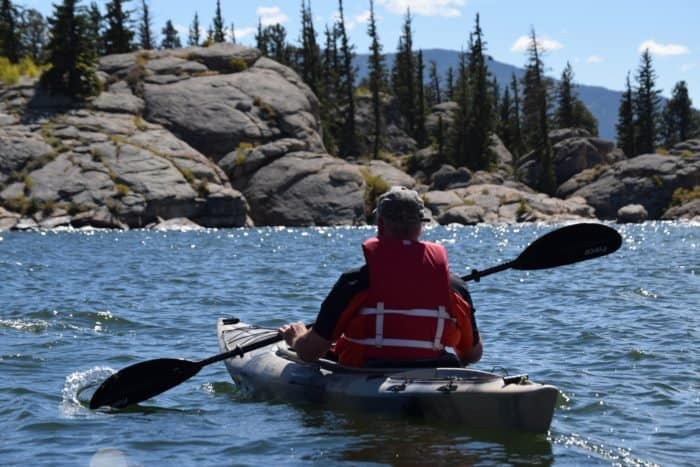
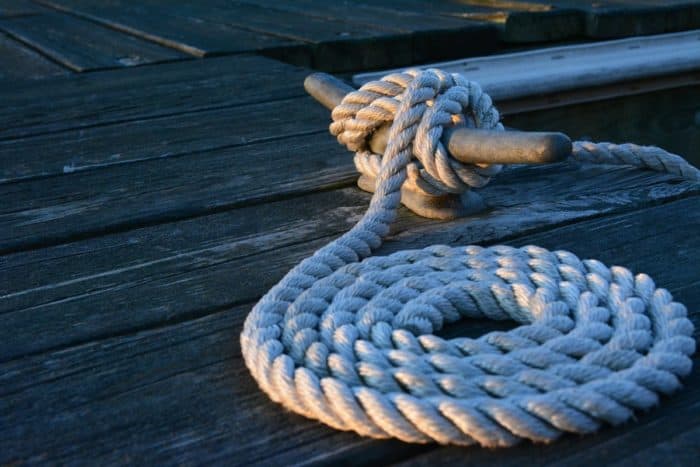
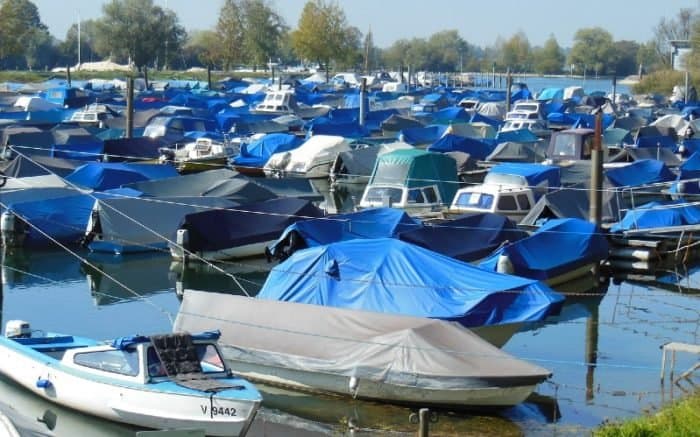
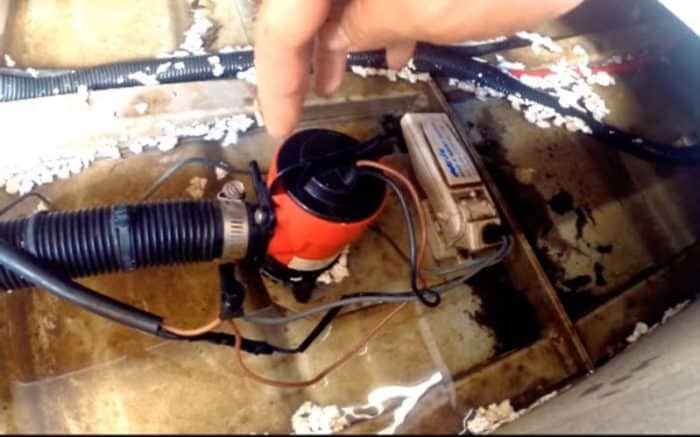
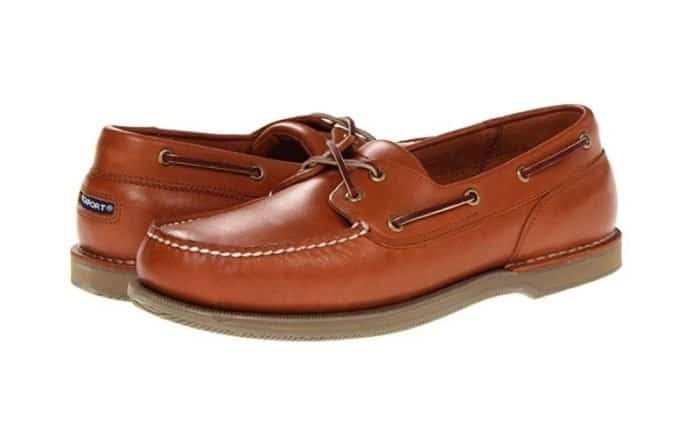




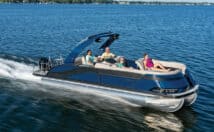
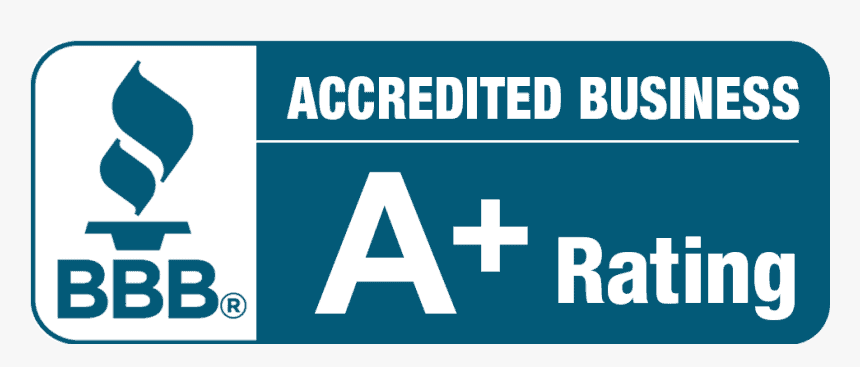


1 Comment
Don Hebel on September 11, 2022
Happy to see that most states care enough to demand common sense from boaters who might not understand the drowning dangers in situations they can’t envision happening to themselves and their families and friends. PFD’s have saved many lives for the small sacrifice of comfort involved in wearing them.My personal experience as a river kayaker has me convinced that even an experienced boater can NEVER anticipate tragedy in water, no matter the water or the weather!